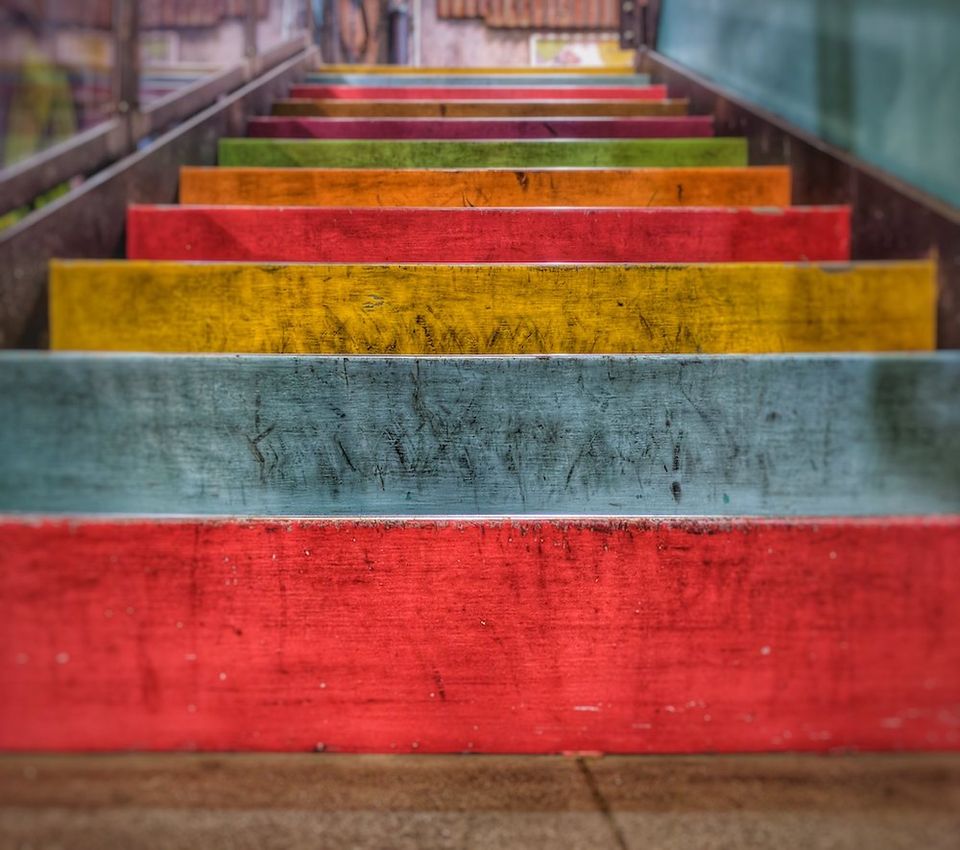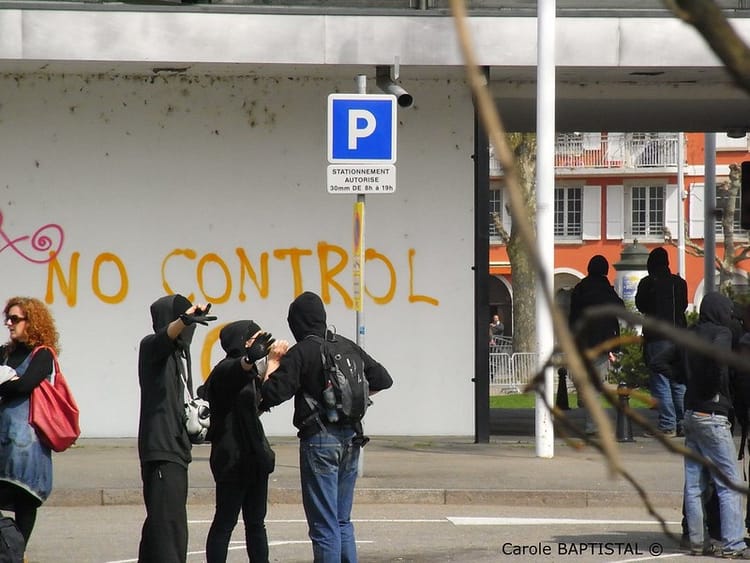What Constitutes a Queer Leadership?

Laying the stepping stones for a new way forward.
For some time I’ve been pondering the question, “What is queer leadership — and does it even exist?”
It would be easier to ask, “What is Gay Leadership?” because we have witnessed gay leadership work to usher in many of the rights, freedoms, and acceptance that we enjoy — albeit precariously — in much of North America and many parts of Europe.
However, this is not to negate the leadership of Lesbians, Trans people and more recently the work of people challenging sexual and gender binary labels, as well as the very labels that make up the ever-changing LGBTQ acronym. In the larger sense, the word gay was historically used to include everyone before we had our current, expansive, and fluid acronym. However, gay has also excluded those who were conveniently overlooked, because they didn’t have a unique label to express their unique identity.
Which brings me back to my opening question, to which I will add,
How can we all work together as a collective of queer thinkers to embrace, demonstrate, and advocate a humanitarian leadership of belonging? How can we — collectively as queer people — lead from the margins to metaphorically corral the disparate fractions of humanity, so that divisiveness between peoples may become less in proximity to create and foster a genuine diversity.
There doesn’t yet exist a so-called “queer leadership” per se, or that I know of, but I am working on developing this new style of leadership that our world desperately needs. That starts here, with this “Living Document”, which I will continually add to, modify, and come back to as the foundations for what I hope to co-create with many other like-minded, queer thinkers.
A New, Queer Path
In early 2018, I read Ray Rigoglioso’s book, “Gay Men And The New Way Forward”, followed by his five-month Gay Men of Wisdom program. Rigoglioso discusses what he has determined to be 14 distinct gifts that are unique to many gay men. These are qualities and characteristics that any human being can have, but how and the propensity to which they show up indicates unique perspectives, insights, and behaviours demonstrated primarily by gay men.
Rigoglioso does the gay male community a tremendous service in demonstrating how many gay men practice these unique gifts, and how they can be used in various ways to improve society. What’s missing, but not absent, is the larger discussion of the strategies and methods for how gay men can use those gifts to lead others, as Rigoglioso writes, to “create evolutionary change in the world.”
Rigoglioso’s work is deliberately focused on gay men:
“There is something distinct about being born into a male body — and feeling comfortable with that gender identity — and being sexually and emotionally attracted to other males. It creates lifelong patterns and longings, and has specific implications for humanity.”Ray Rigoglioso
As a self-identified gay, cis-male, I have learned much more about who I am as a gay man and even experienced a “paradigm shift” in my understanding of forgiveness and empathy as the result of working with Ray, and the other gay men in the Gay Men of Wisdom program. I can both specifically and broadly share my experiences (my narrative) as a gay man, but I cannot assume to speak for a lesbian, a trans person, or however anyone else may choose to self-label.
I also identify as queer — not as a genderqueer man — in my politics and social justice views. This is how I feel connected to something bigger than me though my friendships and support of anyone within the scope of LGBTQ+.
Definition and etymology of the word, queer
queer (adj.)
c. 1500, “strange, peculiar, eccentric,” from Scottish, perhaps from Low German (Brunswick dialect) queer “oblique, off-center,” related to German quer “oblique, perverse, odd,” from Old High German twerh “oblique,” from PIE root terkw- “to twist.”
queer (v.)
“to spoil, ruin,” 1812, from queer (adj.). Related: Queered; queering. Earlier it meant “to puzzle, ridicule, cheat” (1790). — source
What these etymological definitions show is that being a consciously queer person is radically different from the status quo. Being queer is what the dominant hegemonic culture and patriarchy attempt to control and suppress.
I’m a strong proponent and defender of the words gay and queer to indicate identity and acceptance, not exclusion. We can use these words to incorporate variation and we can use them to sharpen our focus. What matters is allowing the individual to choose how they wish to be labelled (if at all), to understand what these words mean in the larger semantic field, and to embrace or reclaim words that others have used to harm and disenfranchise us.
When it comes to using someone’s preferred gender pronouns, often the new and different labels can be confusing. But for now, we need these labels. We need these ways of describing ourselves to be visible and to be included. Until we live in a world where asking first how someone wishes to be addressed is “normal”, or we use they/them as default pronouns, just because someone doesn’t understand the importance of this semantic and linguistics shift does not mean they deserve to be disrespectful or hateful of others self-identification.
The Queer is Political
Looping back to my original question, I feel it’s important to add that we need to queer our current politics, specifically to change from a politics of division to a politics of belonging. We need to recognize that difference does not need to equate with divisiveness.
How ironic — how queer — that LGBTQ people may someday create a political movement for the betterment of humanity, to lay the path for,
“…a New Way Forward — a way that restores the balance between the masculine and feminine, individual freedom and the collective good, human activity and nature. A way that integrates multiple and even competing perspectives into a new global outlook. A way that collapses hierarchies, consigns shame to the history books, and honors the inalienable right to live according to our deepest longings.”Raymond Rigoglioso
Here we begin to realize that our so-called difference — our “otherness” — is our greatest strength. Our difference is our uniqueness and our source of insight — the gift of deep introspection (due in part to various forms and duration of having lived in the closet). As queer people, we can use our unique gifts to make a profound, humanitarian difference in the world.
Evolution is a seed waiting to be planted. You must have faith that the seed will take root, but you also have to water and care for it.
More Thought Leadership:
- Writing a New Narrative. The Power of Story to Save Humanity — LOP098
- If There Is No Binary, Where Does Gender Exist? LOP096
- What’s in a name? The Importance of Being Queer — LOP088
- How Can You Use Your Difference to Make a Difference? LOP072
- Fear of the Other in Defence of the Ego — LOP059
More about the Distinct Gay Male Gifts:
- Vulnerability: How Gay Men Teach the Cleansing of Shame — LOP080
- Ray Rigoglioso, Gay Man of Wisdom — LOP048
- How Gay Men Imbue Culture With Beauty and Creativity — LOP042
- How My Parents Influenced My Identity as a Gay Man
- Forgiveness and Acceptance of Internalized Homophobia — LOP039
- From Sissy Boys to Straight-Acting Gay Men
- Is Forgiveness of Homophobia a Gay Male Gift? LOP030
Image credit: "11 Scuffed Steps" by Mark Gunn





Member discussion